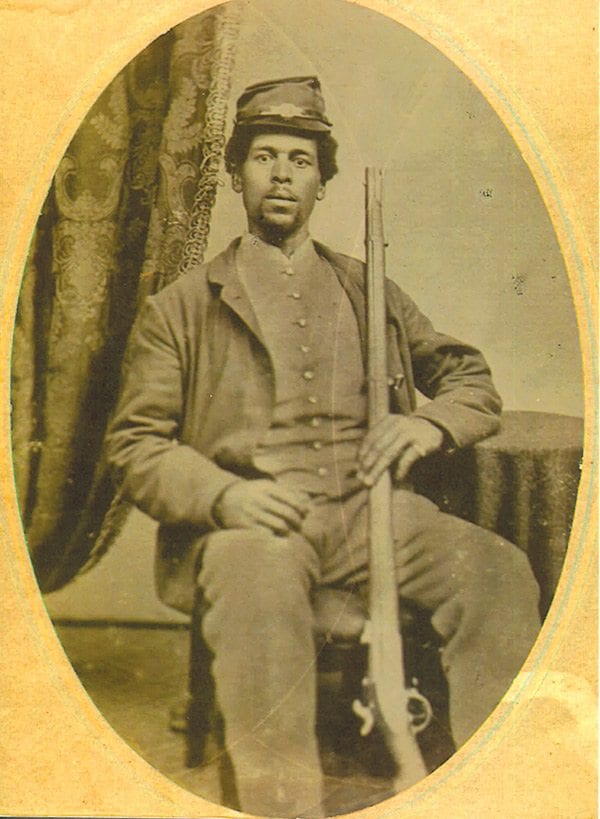
Nanci Conklin Lawton of Dorchester hasn’t seen the movie “12 Years a Slave” yet. But the story of enslavement and liberation Solomon Northrup told in his 1853 memoir rings familiar in Conklin Lawton’s family history.
In fact, Lawton owes her existence to her great-great grandfather’s own struggle for freedom. Like Northrup, Conklin Lawton’s ancestor, Nahum Hazard, was lured into slavery with the promise of work.
“As a 12-year-old child,” said Conklin Lawton about her great-great grandfather, “He had asked his mother if he could assist some gentlemen load cattle onto a train in Shirley, Mass. He lived in Leominster. His mother said ‘of course,’ but the men loaded him on with the cattle and drove him down to Lynchburg, Va.”
Men posing as cattle herders had kidnapped Hazard, and he ended up in a slave pen with other boys. Being abducted and sold into slavery was a common occurrence for free black men and women at the time as both Northrop and Hazard’s story clearly indicate.
“It was like the worst thing that could happen back then,” said Conklin Lawton. “But when [he] asked for a bible to read, it became abundantly clear to the people that had him that he was a free person.”
The Hazards, according to family records, were free blacks who migrated from England to the state of Rhode Island and Providence Plantation in 1778. Some of them had even fought in the American Revolutionary War, according to records uncovered by Norman Conklin, Nanci’s father.
“I had the blessing of having a dad who knew the family history and pattern, not so much to celebrate us, but to let us know that there is greater strength in knowing that you can rely upon your neighbors to do the right thing.”
That’s exactly what happened in the case of Hazard. When the people of Leominster discovered that he had been kidnapped, they acted swiftly.
“A selectman and a member of the clergy went to the Commonwealth of Massachusetts,” said Conklin Lawton. “And as part of the Legislature, there was an act then that would pay for your freedom and free you, if you were a free citizen of the Commonwealth and had become enslaved. So a selectmen submitted a bill to the Legislature, documenting his trip down to Lynchburg and his freedom.”
Years later, Hazard enlisted in the Union Army during the Civil War, serving in the 55th Regiment of Massachusetts, which followed the historic 54th that his older brother, Oliver E. Hazard, had enlisted in.
“He was among many of the Hazard men, and many of the families of the Commonwealth who shared this common history,” said Conklin Lawton.
With more black residents in the state of Massachusetts today than ever before, it might seem nearly impossible to not know someone who has a slavery-related family story to tell.
Conklin Lawton has added seeing “12 Years a Slave” to her to-do list.
“I especially want to see it with my children, and make it a family affair,” she said. “[The story] is a continuum of the American story and I applaud the movie industry for putting it forth and for thinking outside of the box.”






